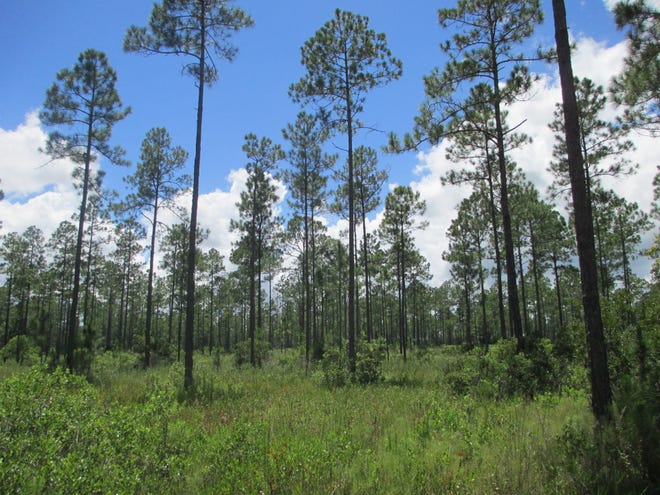
Volusia County and Stetson University are among the partners in a regional conservation effort that has just landed a $25 million U.S. Department of Agriculture grant to, among other things, keep farms farms.
The Alachua Conservation Trust, Inc., which worked with the county to apply for the matching funds, announced Monday that the federal funding has been approved and will be used starting in 2024 to purchase conservation easements and improve land management practices in the “Lake to Lagoon” area covering all of Volusia and smaller parts of Flagler and Lake counties.
The trust matched the $25 million grant with $25 million it raised, including a $20 million commitment in Volusia Forever funds by the County Council in a unanimous vote on Aug. 1.
Volusia County Chair Jeff Brower, who’s also a farmer, said the funding will help conservation efforts tremendously.

“I’m really excited about it,” Brower said.
“A lot of farmers, when they get older and their kids aren’t interested in it, they sell the farm for the highest value, which is development,” Brower said. “There’s a lot of them who don’t want to have to do that.”
Among the considerations is water.
“A lot of that land contains some of our essential wetlands, so that’s one reason it was important to me,” Brower said.
Volusia Forever funding provides match
The Lake to Lagoon tag references Lake George at Volusia’s northwestern tip and the Indian River Lagoon in its southeastern corner. The region covers a diverse area of growing urban and rural landscapes, with a wide swath of largely untouched conservation lands known as the Volusia Corridor, part of the Florida Wildlife Corridor, sitting between the Atlantic coastal communities and the populated cities of Deltona, DeLand and others.
The Volusia County funding was available largely because residents in 2020 voted to renew the Volusia Forever program, dedicating a portion of property taxes to conservation efforts.

Volusia officials told the County Council last August that the $20 million commitment over the next five years will not disrupt other Volusia Forever programs, such as land purchases.
The Alachua Trust ― a regional organization that manages similar land conservation programs from the Georgia state line to the Gulf of Mexico ― was one of 81 funded projects announced by the Regional Conservation Partnership Program.
Not all conservation involves the purchase of land, said Tom Kay, executive director of the Alachua trust. It’s also important to ease development pressures on farm owners through the use of conservation easements, agreements that guarantee agricultural land-use in perpetuity.
A second use for the funds will be the development of programs to allow property owners to more effectively manage their lands through cost-share programs for equipment, fencing, prescribed burns, wetlands restoration and dealing with invasive plants.
Stetson University in DeLand, with its Institute for Water and Environmental Resilience, will also be an active partner in the Lake to Lagoon program. The university’s role will be helping to assess outcomes of the projects to determine concrete benefits, Kay said.
The work of professors and students and possible provision of office space will be considered an in-kind donation, he said.
“The (Regional Conservation Partnership Program) harnesses the power of partnerships for the benefit of our shared environment, leveraging Stetson’s contributions in outreach, education, and scientific research to further conservation efforts in the Lake to Lagoon region,” said Jason Evans, executive director of Stetson’s resilience institute.
Protecting sources of food
Protecting locally or regionally grown foods was a major selling point of the grant project.
“One of the things we’ve seen happen during the last several years, through the pandemic, was supply chains breaking down,” Kay said.
The protection of farms, as well as wider availability of good land-management practices, will help ensure future domestic food security, Kay said.
Suzanne Scheiber, an Ormond Beach resident who’s founder and president of Dream Green Volusia, spoke in favor of a commitment to conservation at the County Council meeting last August.
“Farms need protecting as much as anything else,” she said. “We have agriculture right in our county, a combination of produce being grown and cattle grazing, and if we don’t do something to protect our food source, we’re going to be in trouble in the future.”
Latest on Ormond Fuel Facility Fight:Volusia Council to seek $4.5M from state
Asking for Reconsideration:City manager in Volusia County floats changes to new affordable housing law in Florida
